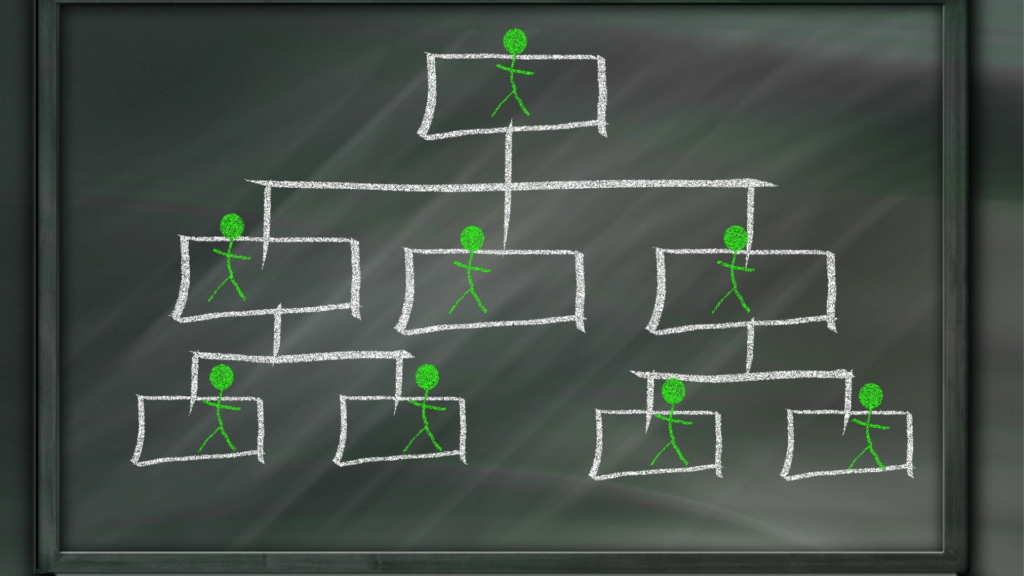Unlocking Success: Understanding Maslow's Hierarchy of Needs for Personal Growth

In the pursuit of success, understanding the inner workings of human motivation is crucial.
One theory that has had a profound impact on psychology and personal development is Maslow's hierarchy of needs.
This theory, depicted as a pyramid, highlights the different tiers of needs that humans strive to fulfill.
By embracing the principles of Maslow's hierarchy of needs, we can create an environment that addresses our physiological, safety, love and belongingness, esteem, and self-actualization needs.
Through this understanding, we can unlock our true potential and foster a culture of growth, fulfillment, and success. Join us on a journey of self-discovery as we delve into the depths of Maslow's hierarchy of needs and explore how it can pave the way to achieving success in all aspects of life.
Understanding Maslow's Hierarchy of Needs
Gaining insight into human motivation and behavior is essential for personal progress and the attainment of success. Abraham Maslow's theory of the five tiers of requirements provides beneficial knowledge of human conduct and inspiration.
By perceiving the different levels and their value, we can achieve a deeper understanding of ourselves and our surroundings. It enables us to recognize the necessity of satisfying these necessities to develop a satisfying and successful lifestyle.
At the basis of Maslow's concept lies the idea of deficiency needs and growth needs. Deficiency needs refer to the lower-level desires that must be satisfied to avoid feelings of lack or deprivation. These incorporate physiological, security, social, and esteem needs.
By satisfying these wants, we build a base of balance and protection in our lives. On the contrary, growth needs are the higher-level needs that push us to strive for individual growth and self-realization.
These requirements are not essential for survival but are essential for personal growth and achieving our full potential. Comprehending this difference is essential to understanding the dynamics of human conduct and behavior.
Maslow's Hierarchy of Needs supplies a structure for comprehending the fluctuations of immediate behavior. By recognizing the level of needs that are currently being fulfilled or unsatisfied, we can assess our conduct and the actions of others.
For instance, if a person's physiological or security needs are not met, they may be more focused on satisfying those needs rather than pursuing higher-level objectives. This comprehension allows us to approach circumstances with sympathy and kindness, recognizing that our actions are often driven by our unmet desires.
In conclusion, gaining knowledge of Maslow's Hierarchy of Needs is essential for personal growth and attaining success. It supplies a valuable understanding of human motivation and behavior, helping us unlock our true potential.
By addressing the different levels of needs, we can create an atmosphere that encourages growth, fulfillment, and success. Whether it is addressing our physiological and security needs or striving for self-esteem and self-actualization, embracing the principles of Maslow's theory can lead to a more fulfilling and meaningful life.
The Five Tiers of Needs
In the article Achieving Success: Learning About Maslow's Hierarchy of Needs for Personal Development, the five tiers of requirements are a critical part of unlocking our potential and creating an atmosphere for accomplishment.
As detailed by Maslow's theory of personality development, these tiers incorporate physical, security, love and connectedness, respect, and self-actualization requirements. Each level plays a significant role in our individual development and overall well-being.
By identifying and addressing these needs, we can embark on a voyage of growth and gratification.
The five tiers of needs in Maslow's hierarchy can be further categorized into lack of requirements and development needs. Deficiency needs include physical, security, social, and esteem requirements.
These needs must be fulfilled to avoid undesirable feelings or a sense of lack. It is only when these basic needs are satisfied that we can concentrate on growth needs. Growth needs refer to the higher-level strivings within Maslow's theory of personality development. These needs spur us to self-actualization and the realization of our full potential.
Comprehending the flow of immediate behavior based on Maslow's hierarchy of needs is essential for personal development. By recognizing which tier of needs is currently driving our activities, we can gain insight into our inspirations and wishes.
The five tiers of needs offer a structure for understanding the intricate relationship between our physical, emotional, and psychological well-being. As we progress through each tier, from the basic physical needs to the ultimate goal of self-actualization, we can strive towards attaining success and fulfillment in our lives.
Maslow's hierarchy of needs is not only a motivational theory in psychology but also a powerful tool for personal growth and transformation.
Deficiency Needs vs. Growth Needs
A basic element of Maslow's hierarchy of wants is the distinction between deficiency desires and development desires. Deficiency desires are the lower-level requirements that must be met in order to evade feelings of lack or dissatisfaction.
These needs consist of physical needs for sustenance, water, and shelter, as well as security needs for security and protection. Longing for love and belongingness, and respect needs for approval and respect also come under the umbrella of deficiency needs.
When these basic needs are met, it enables a person to attain a feeling of stability and safety, paving the way for the pursuit of higher-level development needs.
On the other hand, growth needs are the higher-level requirements that encourage people to work for personal progress and self-realization. These needs are not essential for survival but instead represent the longing for self-improvement and gratification.
Growth needs to encompass the necessity for self-esteem, self-actualization, and the need for personal growth and realization of one's full potential. Knowing the difference between deficiency needs and growth needs is critical for personal growth, as it allows people to prioritize their objectives and focus on the regions that will contribute to their overall growth and success.
By recognizing and dealing with both deficiency needs and growth needs within ourselves and others, we can unlock true capability and form a culture of growth, gratification, and prosperity.
Unlocking True Potential
Achieving true greatness is a journey that necessitates self-awareness, dedication, and a profound grasp of Maslow's framework of requirements. By perceiving and adoring the rules of this hypothesis, individuals can access their instinctive capacities and release their full capacities.
The pursuit of unlocking true potential involves forming spaces that address the different requirements depicted in Maslow's hierarchy, including physiological, safety, love and belongingness, esteem, and self-actualization. By taking care of these essential needs, people can lay a strong establishment for individual development and advancement.
Within the setting of Maslow's hierarchy of needs, unlocking true potential goes past satisfying fundamental needs and meanders into the area of self-actualization. This pinnacle of human advancement speaks to the most noteworthy level of fulfillment, where individuals seek to turn into the best variant of themselves.
By understanding the ebb and flow of prompt conduct dependent on Maslow's hierarchy, people can recognize zones for improvement and focus their endeavors on individual development.
It is through this pursuit of self-actualization that genuine potential can be opened and controlled.
Unlocking true potential is not just about individual development but also about supporting a way of life that energizes and bolsters the improvement of others. By making an environment that addresses the requirements of individuals at all degrees of Maslow's hierarchy, associations can open the joint potential of their groups.
This includes giving openings for development, acknowledgment, and a feeling of having a place.
By encouraging a way of life of development, satisfaction, and achievement, associations can make a space where individuals can thrive and open their genuine potential.
In the pursuit of unlocking true potential, it is fundamental to comprehend the qualification between deficiency needs and development needs. Deficiency needs involve the lower levels of Maslow's hierarchy, for example, physiological, security, social, and respect needs.
Fulfilling these necessities is basic to stay away from feelings of deprivation or inadequacy. Notwithstanding, genuine potential lies in tending to development needs, which allude to the higher levels of the hierarchy.
By concentrating on individual improvement, self-improvement, and self-actualization, individuals can open their genuine potential and arrive at new statures in their own and expert lives.
Creating an Environment for Success
Establishing a successful atmosphere is crucial for individual growth as it provides the foundation for development and accomplishment. Through recognition of the principles of Maslow's pyramid of requirements, we can devise areas that meet the various wants of people.
By addressing physiological, security, love and belongingness, respect, and self-realization desires, we create a milieu conducive to personal growth. This involves establishing a comfortable and secure physical space, furthering positive associations and a sense of association, and allowing possibilities for progress and manifestation.
When these wants are satisfied, people are more likely to feel energized, fulfilled, and ready to unlock their true possibilities.
A key element of formulating a successful atmosphere is forming a culture of growth, contentment, and triumph. This involves presenting chances for education and improvement, inspiring individuals to tackle fresh tasks and extend their capabilities.
By sustaining a growth mentality and providing sources for perpetual enhancement, we form an atmosphere that encourages personal and professional growth. When people feel backed and urged to reach their maximum capability, they are more likely to strive for superiority and attain success.
Forming a successful atmosphere also necessitates comprehension of the rise and fall of immediate behavior based on Maslow's pyramid of requirements. By understanding that individuals have different wants at different times, we can adapt our atmosphere and support systems to meet those wants.
For instance, during times of strain or unpredictability, people may need additional assistance and confirmation to feel secure and protected.
By being responsive to these wishes, we can give the necessary sources and help to assist people to get through difficulties and overcome obstacles.
In conclusion, forming a successful atmosphere is essential for personal development and development. By embracing the principles of Maslow's pyramid of requirements, we can devise areas that attend to the diverse needs of people and unlock their true potential.
By fostering a culture of growth, gratification, and success, we create an ambiance that encourages perpetual enhancement and accomplishment.
Understanding the rise and fall of immediate behavior based on Maslow's pyramid of requirements allows us to supply the necessary support and resources to aid people to flourish. By constructing an atmosphere that promotes personal development and success, we lay the groundwork for individuals to realize their ambitions and realize their full capabilities.
Fostering a Culture of Growth and Fulfillment
Creating an atmosphere that encourages growth and fulfillment is essential for people to reach their highest potential in life. Building a supportive environment involves recognizing and addressing the various deficiency levels, such as physiological, safety, social, and esteem requirements, which form a strong basis for growth and realization of self.
By providing a safe and secure space where these needs are met, individuals can concentrate on their personal growth and unlock their true potential.
To cultivate a culture of growth and fulfillment, it is important to understand the ebbs and flows of behavior based on Maslow's hierarchy of needs. As people progress through the tiers of requirements, they become motivated to strive for self-development and self-actualization.
By acknowledging and fostering this natural progression, we can create an atmosphere that encourages continuous learning, personal growth, and the pursuit of individual aspirations. This not only contributes to individual fulfillment but also increases the overall success and progress of the organization or community.
To nurture a culture of growth and fulfillment, it is essential to provide opportunities to develop skills and talents. This can be done through mentorship programs, instructional workshops, and providing feedback and recognition for accomplishments.
By encouraging and supporting individuals in their personal and professional growth, we build a culture that values and promotes continuous improvement. This not only leads to individual satisfaction but also amplifies the overall success and productivity of the organization or community.
By prioritizing our needs and striving for self-improvement, we can embark on a journey of personal development that leads to a more fulfilling and successful life.
Leave a Reply




Related Posts